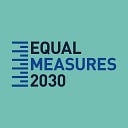CSW62: Ensuring SDG-related Data Reflects Lived Realities of Rural Women
By Sarah Ajaoud, Project Officer, Equal Measures 2030
Despite the priority theme for this year’s Commission on the Status of Women (CSW) focusing on the empowerment of rural women and girls, a large number of rural women were unable to attend CSW, as a good portion were not granted travel visas.
As a result, many organisations from across the globe were left with empty seats at their panels, unable to give visibility and a platform to gender advocates and champions to raise their voice and help us ensure we are leaving no one behind.
This turn of events is even more of a reason to complete Equal Measures 2030’s advocates survey — ensuring that gender equality advocates from across the globe are heard and represented, and able to share their experiences and opinions on progress linked towards gender equality.
In line with CSW 2018's focus on the empowerment of rural women and girls, Equal Measures 2030 (EM2030) used its co-hosted events to emphasize the crucial role of local and grassroots communities in the collection, verification and use of data and evidence to drive advocacy and action on gender equality.
During EM2030’s first CSW62 parallel event ‘Measuring Women’s Empowerment: The Never-Ending Story’, co-hosted by the National Democratic Institute, Winrose Mwangi from GROOTS Kenya stressed that:
‘The United Nations, governments and international organizations need to recognize the role of the community and particularly rural women in data. We need to be engaged in data design, collection, analysis and have ownership as well as access to data.’
The message of rural women and local communication being key drivers in collecting and accessing data was reiterated throughout the conference. Whether it was linked to topics of land rights, early child marriage or gender-based violence, the message was clear: rural women are agents of change at all levels of society.
It is by engaging directly with local communities will data relevant to the Sustainable Development Goals be better able to reflect the lived realities of rural women.
During EM2030’s second parallel event ‘A New Gender Equality Index: Share Your Views’, co-hosted with the International Women’s Health Coalition, the data and measurement challenges of local and regional partners were a key component of discussion.
Justin Anthonie from KAPAL Perempuan, for example, stated that it is difficult to get the real numbers of girls who are forced into early marriages in Indonesia.
She added: ‘Quantitative data is not enough; we need qualitative data. The government doesn’t know what happens in rural areas’.
Furthermore, Crystal Simeoni from FEMNET reinforced the role of Equal Measures 2030 to help fill these gaps: ‘We are aiming for more than just sex disaggregated data. We want to tell a more complex story about the lives of girls and women’.
Besides sharing data challenges and areas of opportunity, the event also served as a platform for development practitioners and gender advocates to provide feedback to Equal Measure 2030’s new Index framework.
The new EM2030 SDG Gender Index, launching in September 2018, will enable EM2030 to tell a story of global progress and will help advocates in the framing of their influencing on the gender equality dimensions of the SDGs.
2018 will be a pivotal year for Equal Measures 2030 as the global partnership further develops its data and influencing work, including the Index framework and other efforts to track progress on gender equality issues.
1 CSW 2018 http://www.unwomen.org/en/csw/csw62-2018
